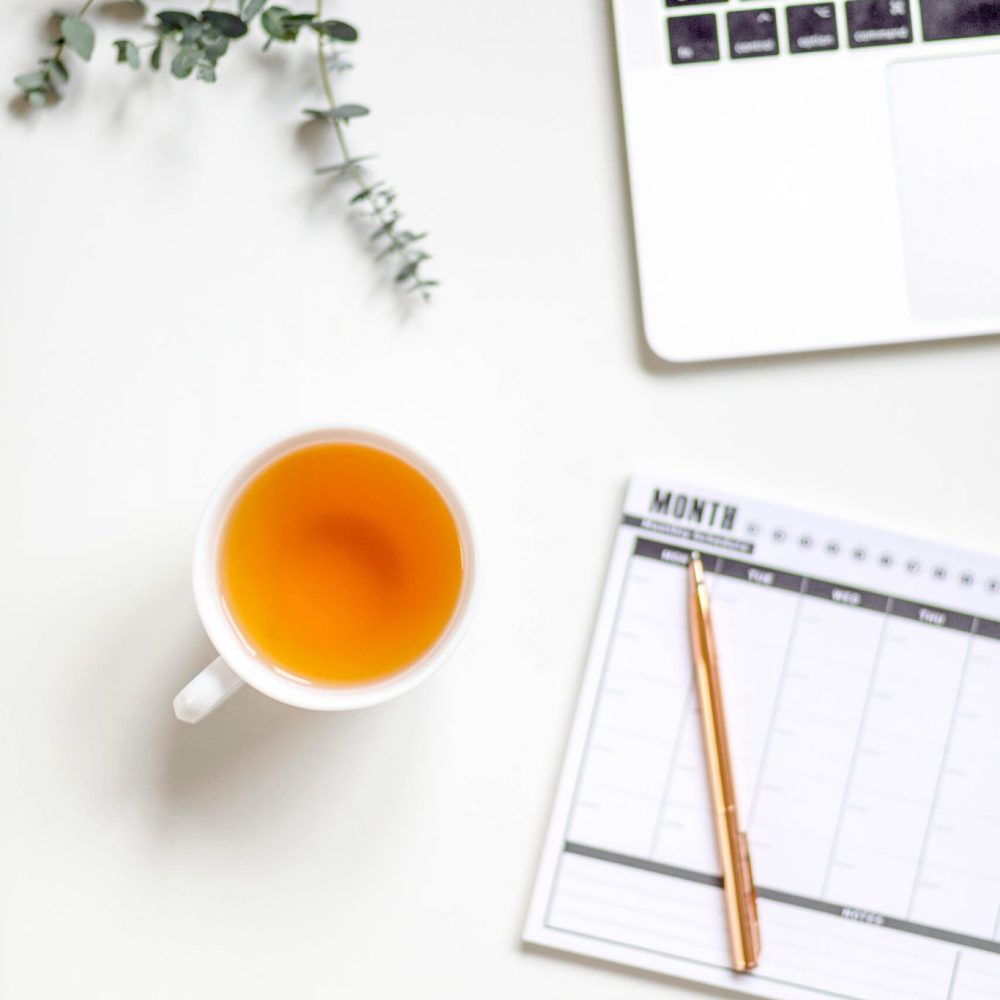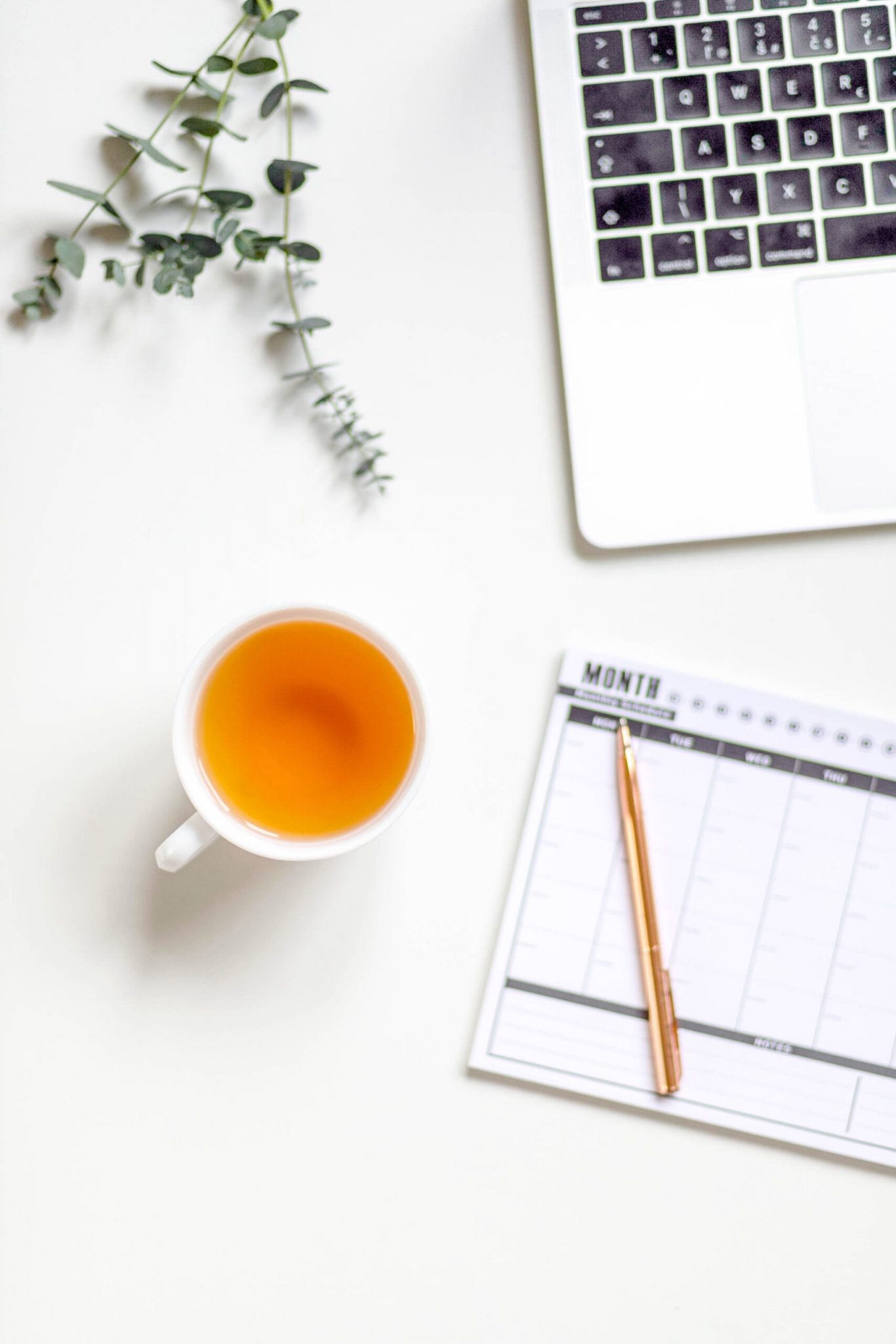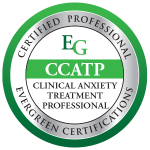Staying calm when you have anxiety can be something you have to work on daily. Sometimes you can start feeling anxious for seemingly no reason, leaving you feeling frustrated, frazzled, and having difficulty learning how to calm down.
I find it so helpful to identify baseline habits that you engage in to help you function at an optimal level, despite what anxiety may bring your way. Ultimately, anxiety can have many causes and triggers, but some common triggers are increased stress and overwhelm.
The list that follows includes 8 easy things that you can start doing to help calm down and cope with anxious thoughts and feelings.

1. Practice Self-Care
Cultivating a calm and positive mood starts with giving yourself the attention you deserve. Take care of yourself in whatever way helps you feel good. This can help improve your mood and give you added protection against anxious thoughts and feelings.
Examples of self-care: Exercise, eating healthy, relaxing, playing with an animal, going for a walk, pampering yourself (taking a bath, doing your nails, etc.), playing a game, coloring, doing a puzzle or word search… Put your attention towards anything that puts you in the moment and helps you feel good.
2. Meditate
Meditation and being mindfully aware in the present are extremely beneficial tools for combating anxiety. Much of anxiety originates from thoughts, behaviors, or physical sensations… and being more mindfully aware through meditation can help you catch yourself before things get worse.
You can search YouTube, Podcasts, or meditation apps (my favorite is Insight Timer) for mindfulness meditations, guided meditations for anxiety, or any other keywords that are relevant to you in the moment.
I suggest this meditation to get started.

3. Be Present
Being present in your life and your body is an immediate way to cultivate feelings of calm. Thoughts about the future often cause feelings of anxiety, and thoughts about the past often cause feelings of depression. Stop the cycle by being present.
5-4-3-2-1 Grounding is an effective method to use:
5-4-3-2-1 Grounding
Be as specific as possible when describing the sensations for each step. This technique is excellent to use if you are experiencing a panic attack or very intrusive thoughts. It helps you to refocus on something other than your thoughts. The great thing is that you can do it by yourself and nobody around you has to know what you are doing.
- You can do this wherever you already are: seated, walking, standing, lying down, etc. Take a deep breath to relax.
- Pay attention to 5 things you can see around you. Name and describe them either out loud, or to yourself. (Examples: I see a black table, a blue book, a fuzzy blanket.)
- Pay attention to your body and notice 4 things you can feel. Name and describe these things either out loud or to yourself. (Examples: I feel the warmth in my shoes, I feel my feet against the ground, I feel the pillow soft against my back, I feel the sleeve on my arm.)
- Pay attention to 3 things you can hear around you. Name and describe these things either out loud or to yourself. (Examples: I hear the traffic outside, the birds chirping, the white noise machine.)
- Pay attention to 2 things you can smell. Name and describe these things either out loud or to yourself. (Examples: I smell the grass outside, the perfume I sprayed this morning.) Name your two favorite smells if you can’t identify any around you.
- Pay attention to 1 thing you can taste. Name and describe this either out loud or to yourself. Name your favorite thing to taste if you cannot taste anything currently. (Examples: I taste the mint from my toothpaste, I taste the fruit from my snack.)
Check out my complete blog post on grounding and relaxation techniques for anxiety here.
4. Practice Gratitude
What you focus on grows bigger. If you focus on anxious thoughts and worries, you will become more anxious. Shift your focus to what is going well in your life and you will feel more appreciative and hopeful. Making a list of 5 things you are grateful for daily can help you practice gratitude and reap all of the benefits.
Start by focusing on the little things… the time you spent relaxing on the couch watching your favorite show, or the sound of the birds chirping outside, or the feeling of the wind against your face when you go for a walk. The more you pay attention, the more you will see.
5. Journal
Getting out and processing your thoughts, emotions, fears, and worries can help you have a healthy outlet so that those thoughts aren’t bothering you throughout your day. The act of getting things out on paper can help to get them out of your head. Check out this post for tips on how to get started journaling.
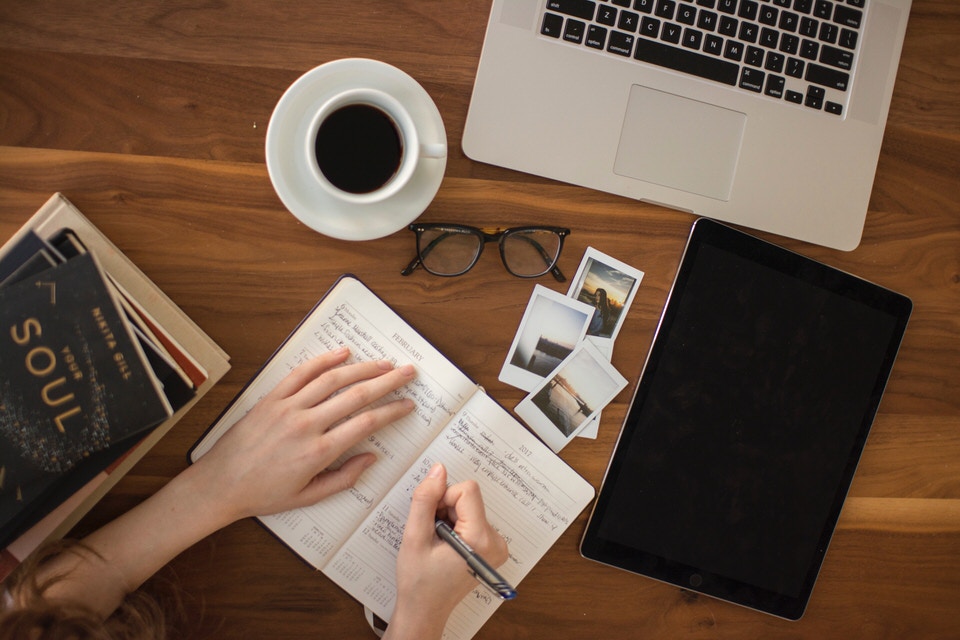
6. Get Enough Sleep
Not getting enough sleep can make anxiety worse, increase stress, and decrease your overall mood. Prioritize getting the amount of sleep your body needs (the average amount of sleep adults need ranges from 7-9 hours a night) and pay attention to the differences in your mood and levels of calm over time.
Think about implementing a sleep routine or relaxation habits before bed if you have difficulty sleeping.
7. Take Things One Step At A Time
Overthinking makes anxiety worse, and that includes thinking ahead about the what if’s, or what you could have done differently, or the negative consequences that could occur 10 years from now. You don’t have control over any of that right now. Focusing on the very next step can prevent overwhelm, anxiety, and help you feel more in control of your life.
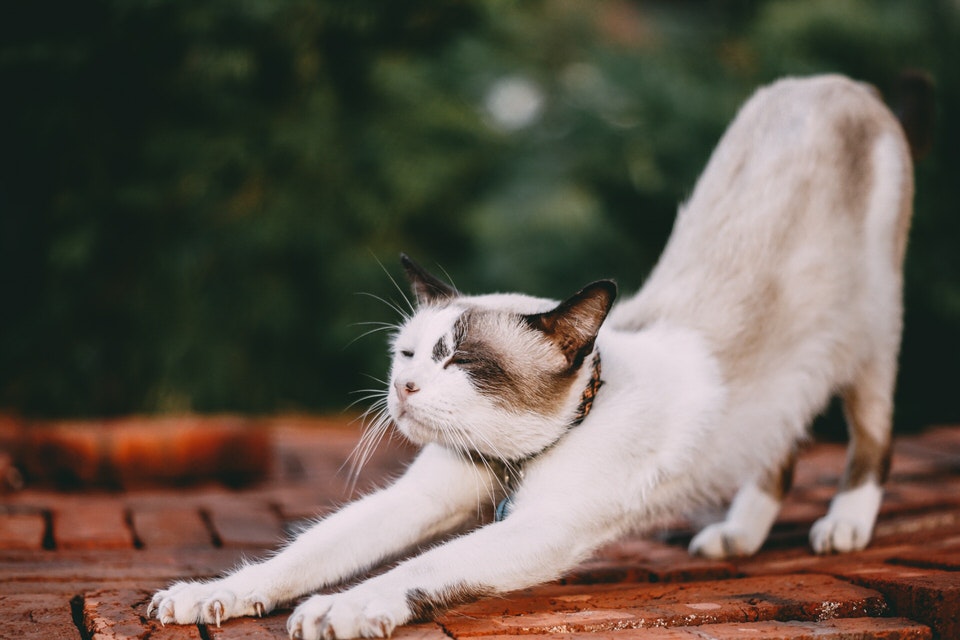
8. Stretch
Anxiety is experienced very physically, and one of those physical symptoms can include tension in certain areas of your body. Many people commonly report experiencing shoulder, upper back, neck, and face tension. Take less than 5 minutes daily to stretch out the parts of your body that tend to build up tension. Do some should rolls, stretch out your jaw, or do a quick yoga routine to help you release that physical tension, which will also help you feel calmer.
Listen, I know it can be difficult to implement every single one of these things into your daily routine. Feel free to take what resonates with you and leave the rest! The important part is tuning into your personal needs.
I hope these tips were helpful for you. If you live in New Jersey and are looking for private support to help you cope with and decrease anxiety, schedule an appointment with me here.

